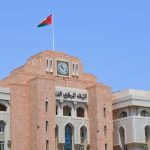The Qatar Cancer Society (QCS), in partnership with the National Non-Communicable Diseases Alliance in the Eastern Mediterranean, recently organized a discussion session titled ‘Enhancing Access to Early Detection and Treatment of Breast Cancer in the Region’ during the 71st session of the WHO Eastern Mediterranean Regional Committee meeting in Doha, Qatar. The session was attended by prominent figures such as Sheikh Dr. Khalid bin Jabor Al Thani, H E Dr. Mustapha Al Ferjani, Dr. Hanan Balkhy, and Dr. Ibtihal Fadhil, who discussed various aspects related to breast cancer in the region. The aim of the session was to bring together key stakeholders to raise awareness about breast cancer and work towards improving access to early detection and treatment services in the Middle East.
The discussion session highlighted the current scenario of breast cancer in the region, with statistics indicating that it is the most common cancer among women in the Middle East and North Africa. The session emphasized the need for collaborative efforts to address the barriers to early detection and treatment, such as lack of awareness, social stigma, and inadequate healthcare resources. Additionally, successful experiences in implementing early detection programs were shared as potential models for other countries to follow. The session concluded with a set of recommendations aimed at improving breast cancer outcomes in the region and ensuring equitable access to early detection and timely treatment.
During the session, Sheikh Dr. Khalid bin Jabor Al Thani emphasized the importance of prioritizing early detection of breast cancer and integrating it into national health policies and cancer control plans in the region. He stressed the need for partnerships and collaboration between governments, civil society organizations, and community groups to effectively implement early detection programs and improve outcomes for women with breast cancer. The session focused on building awareness among stakeholders, advocating for resource allocation, and implementing WHO guidelines to strengthen health systems and reduce mortality rates.
Moving forward, it is evident that concerted efforts are needed to address the burden of breast cancer in the region and ensure that all women have access to early detection and timely treatment. The development of inclusive, gender-sensitive policies is crucial to meet the unique needs of women affected by breast cancer, regardless of their social or geographical status. By implementing the recommendations proposed during the discussion session, stakeholders can work together to improve outcomes for women with breast cancer and reduce the impact of the disease on individuals, families, and communities in the Middle East.











